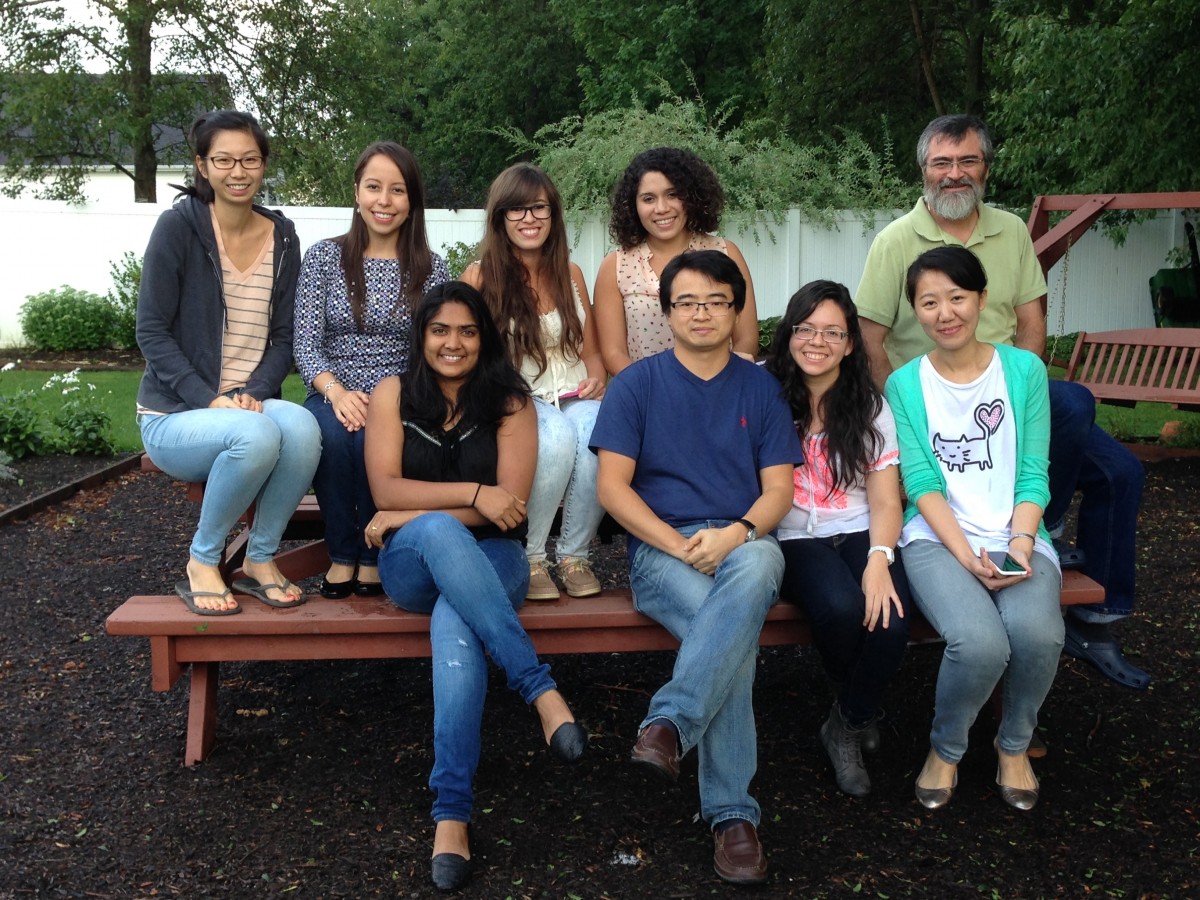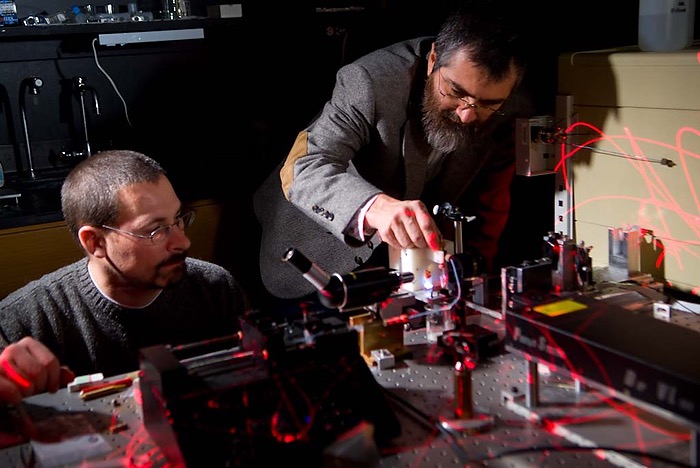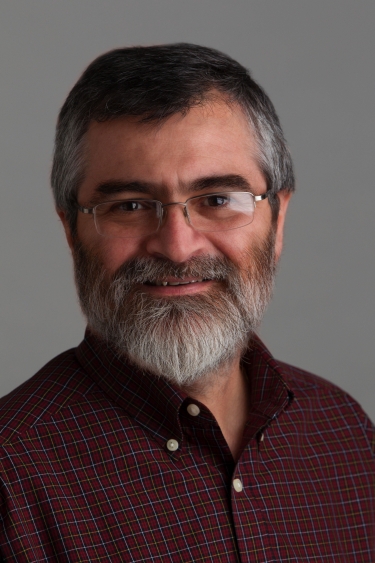Luis A. Colón: A chemist and teacher dedicated to excellence in mentorship and research
Submitted by Reyna I. Martínez De Luna on
Mentoring is crucial for success. A mentor’s unconditional support can propel you forward, and the guided learning that a mentor provides encourages professional and personal growth. For Dr. Luis A. Colón, mentoring is also a way to pay it forward. Throughout his journey to become a professor, Dr. Colón had very good mentors. He has made it his mission to serve others in a similar way.
Dr. Colón was born and raised in Cidra, Puerto Rico, where he attended public school and helped to look after his six younger brothers and sisters. He left his hometown after a year of high school to attend the CROEM boarding school (Centro Residencial de Oportunidades Educativas de Mayagüez), and finished in just two years.
Exposure to the intellectual stimulus of college and an early interest in chemistry motivated him to pursue this discipline as a major when he attended the University of Puerto Rico at Cayey (UPR-Cayey). “My fifth grade teacher, Mr. Pagán, was the person that got me interested and excited about chemistry. However, I did not see chemistry as a profession until I got to college and did very well in my first chemistry class. Science was something for which CROEM prepared me very well.”
With a chemistry degree in hand, Luis first worked as a laboratory instructor at his undergraduate institution and later for a pharmaceutical company called Syntex in Puerto Rico. It was here where he had his first opportunity to do research and development (R&D). He greatly enjoyed the iterative process of developing new methodology and its immediate use to analyze pharmaceutical compounds, which not many people with just a bachelor got to do in the private sector in Puerto Rico at that time.

Colón laboratory summer 2014. Top row from left to right: Chi Man Ng, Lisandra Santiago-Capeles, Karina M. Tirado-González, Amaris C. Borges-Muñoz. Bottom row from left to right: SowjanyaGarapati, ZuqinXue, JosmelyVélez-González, Ping He.
This experience motivated Dr. Colón to obtain an advanced degree. Although he was able to do some R&D at work, most of his day-to-day duties consisted of a significant amount of routine work. Having been bitten by the research bug and knowing that he could contribute more, Dr. Colón realized that he had to go to graduate school if he wanted to aspire to more advanced research-intensive positions. He left for grad school with plans to return to industry after completing a PhD, but as he says “life took over”.
To obtain his doctorate in chemistry, Luis left Puerto Rico and moved to Lowell, Massachusetts, to attend the University of Massachusetts campus in that city. At UMassLowell, Luis joined the research group of Dr. Eugene F. Barry, an outstanding mentor who gave Luis the freedom to explore different directions within his research. It was this freedom to follow his curiosity that made him first consider a research career in academia instead of industry. “Graduate students do not always find an advisor who lets them explore as freely as I was able to do. This inspired me to seek a position where I could do my own research while creating opportunities for others to develop their potential.”
Set on continuing a career in academia, Dr. Colón moved to Stanford University after he completed his PhD to work as a postdoctoral scholar. There, he joined the research group of Dr. Richard N. Zare, who led a very large group of about 40 researchers who were involved in a multitude of projects. Seeing so many people from diverse backgrounds working together was an amazing experience. This rich research environment provided Dr. Colón the resources and independence to conduct research in a new upcoming technology in chemical analysis, capillary electrophoresis. It was very exciting to work at the forefront of research having people contributing with different perspectives on a stimulating scientific problem at the time. It also allowed him to refine his ideas and his determination to pursue an academic career.
While searching for faculty jobs, Dr. Colón applied to the University at Buffalo SUNY after a suggestion from his postdoctoral mentor. He immediately got a job offer and accepted the position, and has been at SUNY Buffalo ever since, now as an endowed A. Conger Goodyear Chair Professor and Associate Dean for Graduate and Postdoctoral Education. Buffalo has been a great place to develop his career and do good science. In retrospect, Dr. Colón says that his postdoctoral mentor was right about SUNY Buffalo, which turned out to be a great place for him.

Dr. Colón doing an experiment with Dr. Jared S. Baker now Assistant Professor of Chemistry at Elmira College.
Dr. Colón has focused his career in the field of analytical chemistry, specifically, on problems related to the separation of compounds and how to improve the methodology used in analytical measurements. His laboratory seeks to develop new media to separate compounds based on their physico-chemical characteristics, also known as chromatography, strategies to detect molecules contained in samples of micro and nanoliter volumes[GG3] , an[LAC4] d new methods to separate and analyze complex chemical and biochemical mixtures, such as intracellular components, protein digests and pharmaceutical drugs. He has recently become interested in the study of nanomaterials and their potential application in chemical analysis. His work has led to eight U.S. patents and about 100 publications.
Hand in hand with Dr. Colón’s successful research efforts is his amazing track record training and mentoring graduate students. During his career, he has mentored 27 Ph.D. students, 14 master’s students, over 35 undergraduate students, 4 high school students, and 6 postdoctoral/visiting scholars. A total of 28 of his graduate students have been from underrepresented groups in science, including many Puerto Ricans and Hispanics.
For Dr. Colón, training students from underrepresented groups has been an integral part of his career. His goal is to increase the participation of students from underrepresented backgrounds in science by empowering them with opportunities and advice. For Dr. Colón, the key is to let students know about the possibilities available to them and convince them that they too can achieve them. “Attracting minorities to science takes commitment and an aggressive recruiting from the undergraduate level through graduate school” says Dr. Colón.
Dr. Colón never tires of the thrill of teaching. For him, the part of his job he still enjoys the most is his direct interaction with students working on a research project or during office hours. He enjoys taking the time to engage in one-on-one interactions to teach them a particular technique or the proper use of lab instrumentation. In the lab, he still enjoys setting up new experiments and sharing the excitement of doing research and collecting data. A major satisfaction from his work is to see his students grow professionally and personally to become successful scientists that go on to contribute to the workforce and the progress of society.

Dr. Colón at Dr. Glorimar Vicente's graduation.
Over the years, Dr. Colón has received many accolades for his research and mentoring. This year he was awarded the Presidential Award for Excellence in Science, Mathematics and Engineering Mentoring (PAESMEM). This award recognizes individuals or organizations that have demonstrated excellence in mentoring individuals from underrepresented groups in STEM education and workforce. When asked what it means to be a PAESMEM awardee, Dr. Colón said: “Being selected for the PAESMEM validates the significance of my efforts. It recognizes that my work is making a difference that is being recognized at the national level, and that is very rewarding.”
Being a champion of underrepresented groups in science, Dr. Colón encourages young minds toward the sciences. To students that think they might be interested in science Dr. Colón urges: “Follow your instinct. Listen to yourself, pay attention to the things you are doing, reading and dreaming about. If you have a thirst for understanding the world around you and how things work, it is very likely that science and technology is your interest. If it is, go learn more about it. There is nothing better in the world than to have a career doing what you enjoy doing.” To students that are already in science, he emphasizes “you have the capabilities to do better than you think.”








